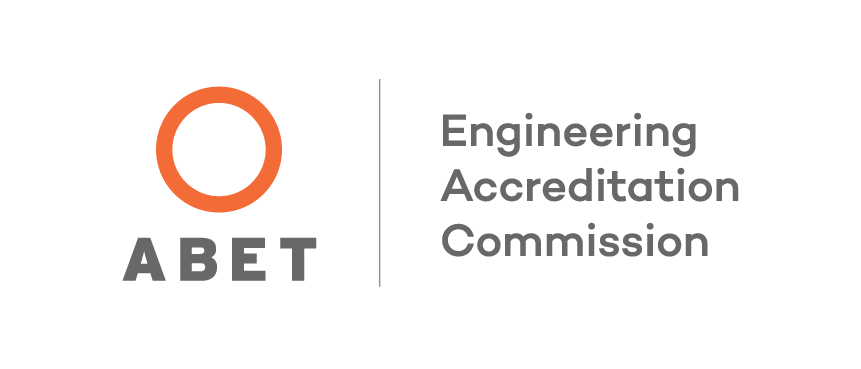
ABET
Accredited by the Engineering Accreditation Commission (EAC) of ABET, http://www.abet.org.

Mission Statement
The mission of the New Mexico Tech Electrical Engineering Department is two-fold: (1) to develop and maintain a program of excellence in teaching which ensures that our graduates have technical knowledge and professional skills they need to become effective engineers in the rapidly-changing technical environment of today's society, so that these graduates will contribute to the growth and development of New Mexico and our nation, and (2) to develop and maintain state-of-the-art research programs which are responsive to the needs of industry and government, which provide excellent educational opportunities for students, and which provide an environment for intellectual growth and excitement.
Program Objectives
The faculty of the Department of Electrical Engineering strives to continuously improve the undergraduate program in electrical engineering. The educational objectives reflect the needs of, and have been reviewed by, among others, the Advisory Board and faculty. Several years after graduation it is expected that the program's graduates will be:
- recognized leaders in electrical engineering-related fields or other career paths, in the public and private sector;
- valued leaders and participants in diverse teams who boldly discover and apply new knowledge and engineering practices;
- adaptive learners who continue to grow professionally in their organizations, or by earning post-graduate degrees.
Student Outcomes
Student Outcomes for Undergraduate Program in Electrical Engineering
Upon graduation with the degree of Bachelor of Science in Electrical Engineering, students will have obtained:
- an ability to identify, formulate, and solve complex engineering problems by applying principles of engineering, science, and mathematics,
- an ability to apply engineering design to produce solutions that meet specified needs with consideration of public health, safety, and welfare, as well as global, cultural, social, environmental, and economic factors,
- an ability to communicate effectively with a range of audiences
- an ability to recognize ethical and professional responsibilities in engineering situations and make informed judgments, which must consider the impact of engineering solutions in global, economic, environmental, and societal contexts,
- an ability to function effectively on a team whose members together provide leadership, create a collaborative and inclusive environment, establish goals, plan tasks, and meet objectives,
- an ability to develop and conduct appropriate experimentation, analyze and interpret data, and use engineering judgment to draw conclusions,
- an ability to acquire and apply new knowledge as needed, using appropriate learning strategies.